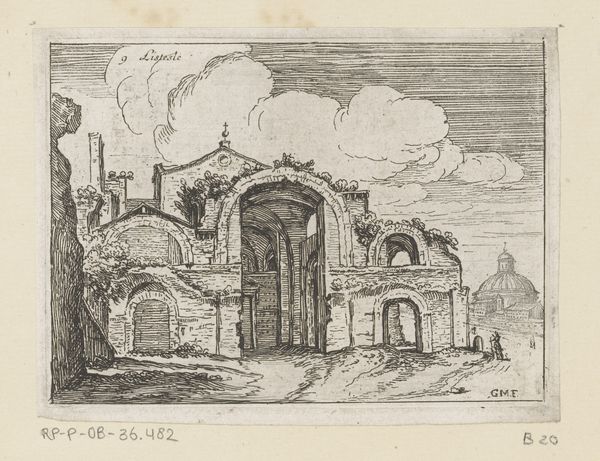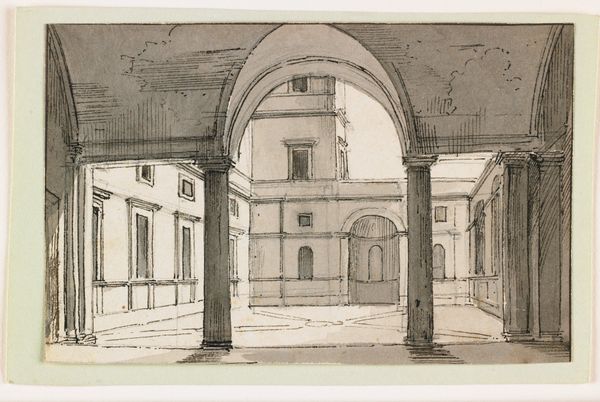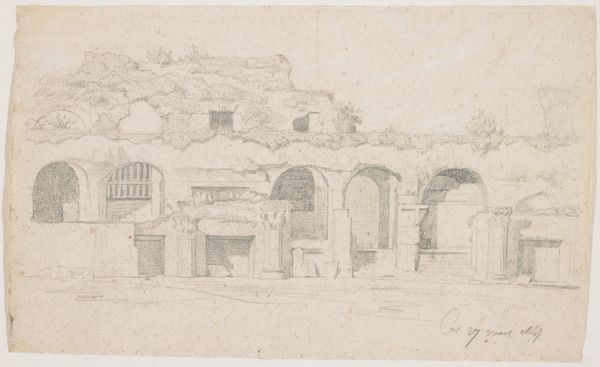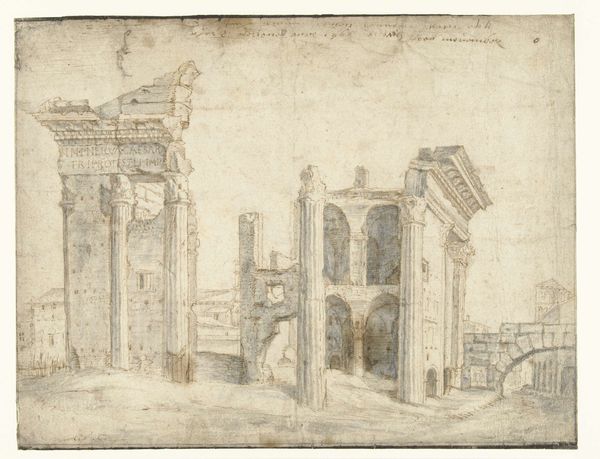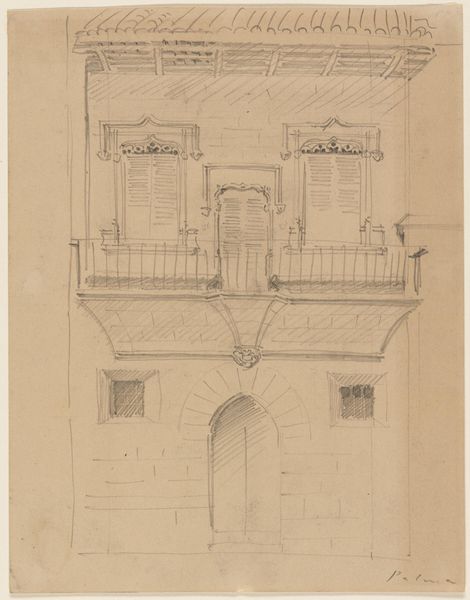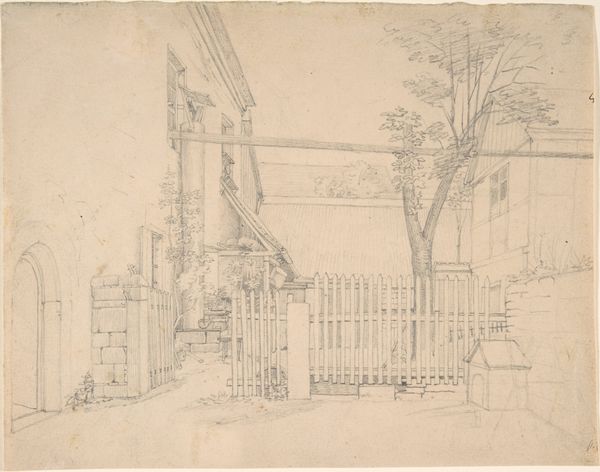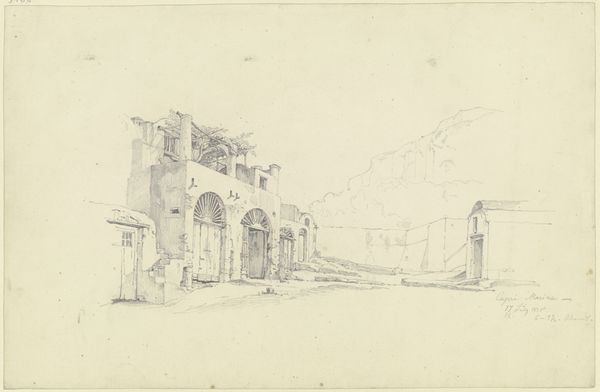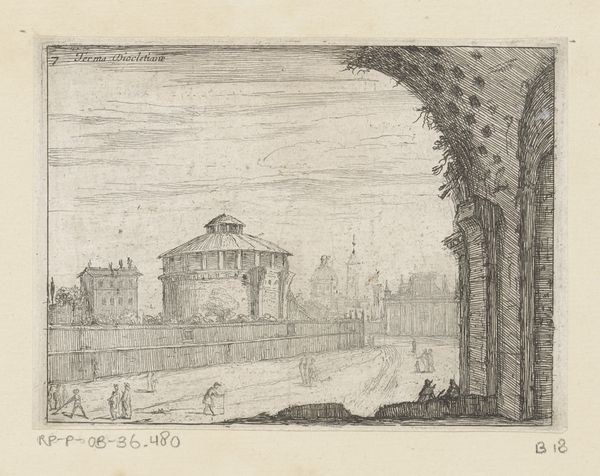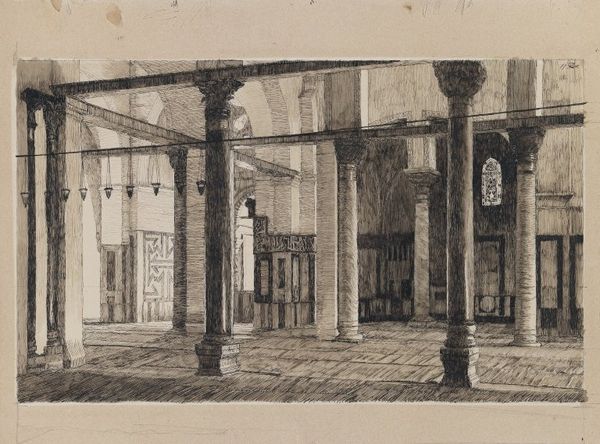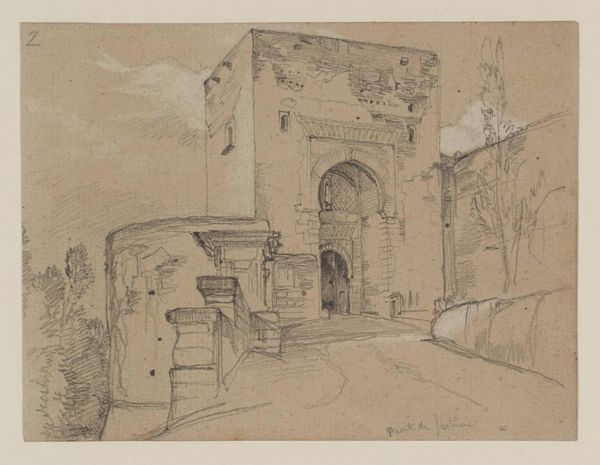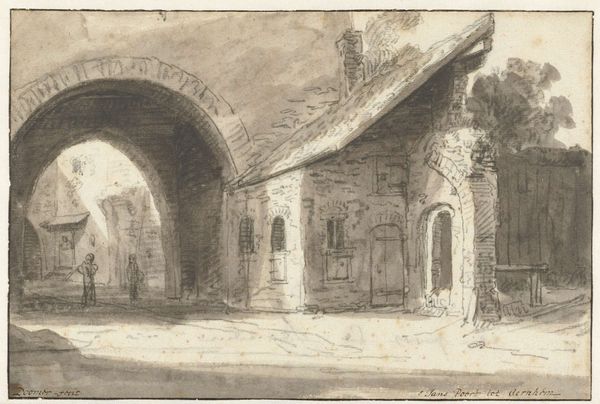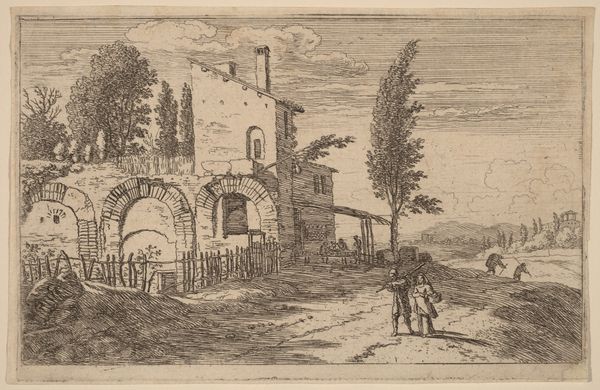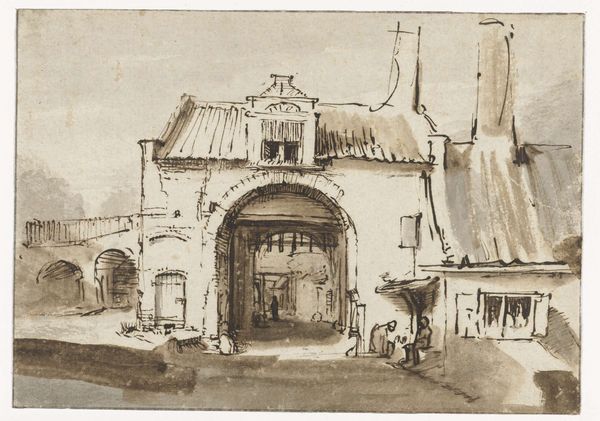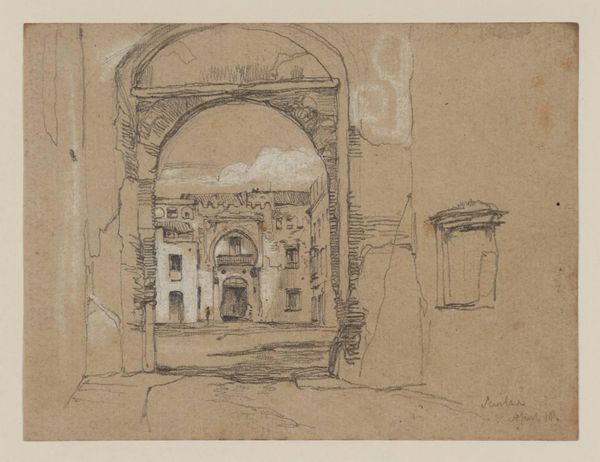
drawing, print, etching, architecture
#
drawing
#
baroque
# print
#
etching
#
landscape
#
cityscape
#
architecture
#
realism
Dimensions: height 94 mm, width 130 mm
Copyright: Rijks Museum: Open Domain
Curator: Ah, there's something melancholy and yet also sturdy about this etching. The detail! You almost feel the stillness. Editor: This is Giovanni Battista Mercati's "Resten van de Thermen van Diocletianus te Rome," made in 1629. It translates to "Remains of the Baths of Diocletian in Rome," and I find myself utterly transported. Curator: Transports you where, exactly? Aside from back to when you may have enjoyed your favorite architectural ruin? It looks rather desolate... perhaps evoking something to be restored to its past state? Editor: It certainly does capture that Roman desolation, that sense of lost empire, with its arches eaten away and that persistent dome looking slightly...defiant, shall we say? But it's also more than just sadness; I see it as a testament to cyclical time. Rome wasn't built in a day, as they say, and, in that same vein, it didn't crumble in a day either. These ruins show how grand structures gradually become intertwined with nature again. See how nature reclaims spaces? Bushes spring out from on top of broken stones. It's about resilience. Curator: Ah, yes. The tenacious weeds of history reminding us, that is, *me* –that no structure, however monumental, can completely defy the earth’s eventual claim. But don’t you find Mercati’s lines themselves almost delicate in their depiction? It’s as if he’s rendering the ghosts of these baths, rather than the solid presence. I get this faint vibration, something on the threshold of disappearing completely from time. Editor: Exactly! The delicate lines and meticulous detail add a layer of preservation of memory. Ruins aren't simply the absence of a building; they're charged locations brimming with forgotten uses. Look closely – there are signs etched into the stonework, echoes that speak volumes concerning a community's sense of self and the impact on modern social memory. Curator: Well, that’s beautifully put! It brings to mind how we all carry vestiges within, fragments and echoes of previous lives…like ghostly public pools we can never quite bathe in again. Thanks for sharing that poignant, perhaps slightly mournful reading on it all. Editor: And thank you for joining me and going there in those feelings of quiet introspection! Until next time.
Comments
No comments
Be the first to comment and join the conversation on the ultimate creative platform.
